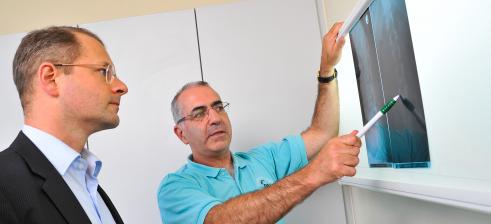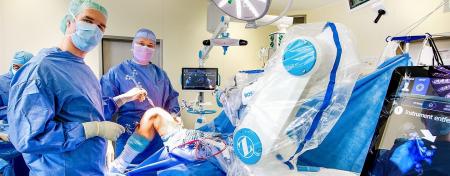There are more than 80 hospitals with roughly 20,000 beds in Berlin. They provide their patients with the complete spectrum of medical care. Complex treatment and surgery are performed using highly specialized medical equipment. Inpatients benefit from close and precise monitoring and care at all times. Berlin’s hospitals offer diagnosis, treatment and follow-up care in all specialist medical fields and for virtually every conceivable medical condition.
Hospitals in Berlin differ in terms of size and specialization. Apart from those offering primary care, there are hospitals specialized in particular diseases such as cardiological or orthopaedic conditions. Then there are what are known as maximum-level care providers, which treat complex and complicated conditions in line with the latest scientific findings. These include all of the Charité’s sites, plus some of the Vivantes and Helios hospitals. University hospitals like the Charité additionally combine their work with scientific research and teaching.
Medical rehabilitation is a medical discipline in its own right in Germany, and is on offer in specialist hospitals. Its aim is to fully restore patients to health so that they can again cope with their personal and work lives under their own steam. Rehabilitation takes place following cardiovascular operations and includes an exercise and diet regime to ensure that the patient can lead a healthier life again. After orthopaedic surgery, patients have to relearn motor skills, while oncological rehabilitation is designed to teach patients how to make the necessary lifestyle changes.
In terms of their organizational structure, Berlin’s hospitals are run by various institutions – some public, some private and others non-profit. Though this makes no difference when it comes to providing high-quality medical care, the style of and approach to patient care may differ from one hospital to another.
Selection of hospitals
















